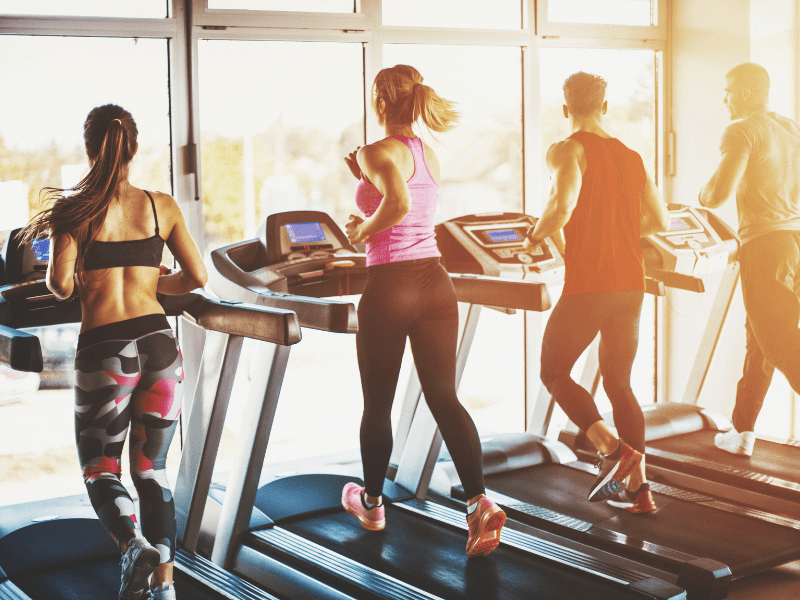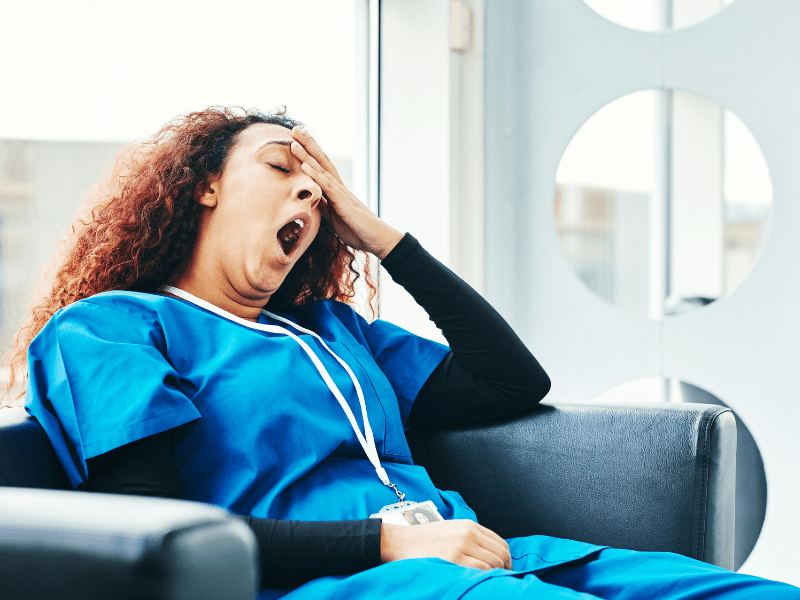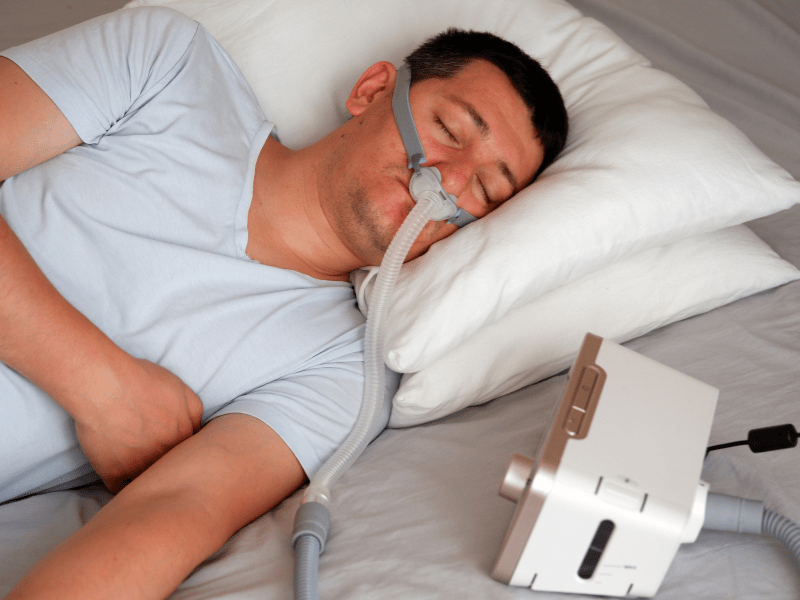Sleep may seem elusive, especially after a long tiring day. Did you know that engaging in regular physical activity can enhance both the quality and duration of your sleep? This blog post explores the intricate relationship between exercise and sleep, providing tangible strategies to help improve your rest through physical fitness.
Read on for intriguing insights into achieving a better night's sleep!
How Exercise Affects Sleep
Exercise decreases insomnia and has a positive impact on sleep quality and duration, improving overall restfulness.
Exercise decreases insomnia
Doing exercise helps you sleep better. If you have trouble sleeping, exercise can make it better. It's been found that adults who work out get good sleep. They see a change in their sleep quality.
Those who can't sleep well might find relief by doing more physical activity. Exercise not only makes your body strong but also resets your inner body clock, aiding your rest at night.
So, if you’re looking to buy a mattress for better rest, remember to work out too!
The relationship between sleep and exercise
Working out does good things for your sleep. Many people fight with poor rest due to insomnia. Exercise helps beat this problem for temporary insomnia issues. It makes falling asleep quick and easy. You also enjoy a deep sleep that lasts long enough to feel rested in the morning.
Not just that, but exercise drives away stress which often messes with sleep patterns! Plus, it can reset your body's inner clock or circadian rhythm, making you sleepy when it is bedtime.
Lastly, if someone has a sleep disorder like restless leg syndrome or apnea, regular physical fitness routines can lessen these issues greatly.
How exercise may help improve sleep
Doing the right exercise helps you sleep well. It makes your body tired and ready for rest. Exercise can fix sleep problems like insomnia. People who do regular workouts get better sleep than those who don't exercise regularly.
Exercise does more than just make you tired. It helps reset your "body clock". This is the rhythm that tells your body when to wake up and go to bed. When you workout, it sets this clock right and improves how long and well you sleep.
So, moving your body during the day may lead to better nights of rest!
The Best Time and Type of Exercise for Better Sleep
Timing of exercise may matter. Engaging in physical activity closer to bedtime can actually make it harder for some people to fall asleep, as it increases alertness and raises body temperature.
On the other hand, exercising earlier in the day has been shown to promote better sleep quality and duration. It is recommended to finish moderate-to-vigorous aerobic exercise at least three hours before going to bed for optimal sleep benefits.
As for the type of exercise, any form of physical activity can help improve sleep, but aerobic exercises like walking, running, cycling, or swimming have been found to be particularly effective in promoting restful sleep.
Timing of exercise may matter
The timing of when you exercise can actually make a difference in your sleep quality. Evening workouts have been found to be particularly effective in improving sleep. This is because exercising raises your core body temperature, which signals wakefulness to the body.
However, after 30 to 90 minutes of exercise, your body temperature drops, promoting sleep. So if you want to get better rest at night, consider fitting in some physical activity during the evening hours.
It could have a positive effect on your sleep quality and help you feel more refreshed in the morning.
Recommended amount of exercise for better sleep
Regular exercise is important for better sleep, but how much exercise should you aim for? The recommended amount of exercise for better sleep is about 150 minutes of moderate-intensity activity each week. This can be broken down into smaller sessions throughout the week, making it more manageable. Moderate-intensity activities include brisk walking, cycling, and swimming. By getting your heart rate up and engaging in regular physical activity, you're likely to experience improved sleep quality and duration.
So, make sure to incorporate at least 30 minutes of exercise most days of the week to promote restful sleep and enjoy all the benefits that come with it.
Best exercises for sleep
If you want to sleep better, try these exercises:
- Walking: Taking a walk during the day can help improve your sleep at night.
- Yoga: Practicing yoga before bed can relax your body and calm your mind.
- Pilates: Doing Pilates exercises can promote relaxation and relieve tension in your muscles.
- Swimming: Swimming is a low-impact exercise that can help you unwind and prepare for a good night's sleep.
- Cycling: Riding a bike is a fun way to get moving and tire yourself out before bedtime.
The Impact of Exercise on Mental Health
Exercise has been shown to have a positive impact on mental health, reducing symptoms of sleep-related mental health issues and promoting overall well-being. If you're interested in learning more about how exercise can improve your sleep and mental health, keep reading.
Decreased symptoms of sleep-related mental health issues
Exercise has been shown to have a positive impact on mental health, including reducing symptoms of sleep-related mental health issues. Regular physical activity can help alleviate conditions such as insomnia and sleep disorders, improving overall psychological well-being.
Studies have found that exercise promotes the release of endorphins, which are natural mood boosters that can reduce anxiety and depression. By incorporating exercise into your routine, you may experience decreased symptoms of sleep-related mental health issues and enjoy better overall sleep quality.
The connection between exercise and mental well-being
Regular exercise is closely linked to good mental well-being. Engaging in physical activity can have a positive impact on your emotional wellness and overall mood. Studies show that exercise helps reduce stress, improve sleep quality, and even alleviate symptoms of mental health disorders.
It also enhances cognitive function and boosts self-esteem. By increasing physical activity, you directly contribute to improved mental health and an overall sense of well-being. So, not only does exercise benefit your body, but it also plays a significant role in keeping your mind healthy and happy.
Conclusion
In conclusion, regular exercise has a positive effect on sleep quality and duration. Engaging in physical activity can help improve your ability to fall asleep quickly, experience deeper sleep, and wake up feeling more refreshed.
Remember to choose the right time for exercise and incorporate it into your routine to reap these benefits for better rest and overall well-being.
FAQs
1. Does exercise help improve sleep?
Yes, regular physical activity can help improve the quality and duration of sleep.
2. How much exercise do I need to get better sleep?
Engaging in at least 30 minutes of moderate-intensity exercise most days of the week can significantly improve sleep quality.
3. When is the best time to exercise for better sleep?
Exercising earlier in the day or during daylight hours is generally recommended as it gives your body enough time to cool down before bedtime, promoting better sleep.
4. Can exercising too close to bedtime disrupt my sleep?
Yes, intense aerobic workouts or stimulating activities close to bedtime can make it harder for some individuals to fall asleep, so it's best to allow a few hours between exercise and bedtime.
5. What are other ways that exercise affects rest?
In addition to improving sleep quality, regular exercise can also reduce symptoms of insomnia, decrease daytime drowsiness, and contribute to an overall healthier lifestyle.



















